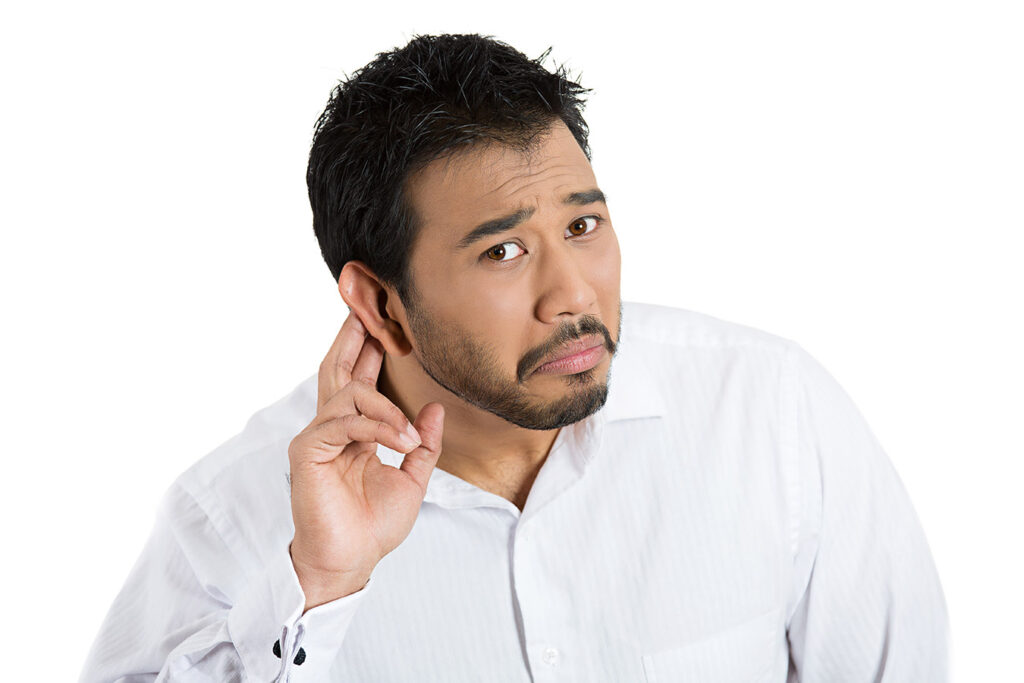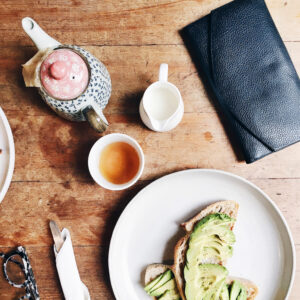Advertisement
What’s That You Say? It’s Speech and Hearing Awareness Month?
Listen up! It’s time to give your hearing some attention!

How many times did you say, “Pardon me?” or “What?” or “Say again?” today? If the answer is not at all, you probably have good hearing. But when your hearing is impaired, this can be a common mantra—and a real struggle. We take lots of things for granted. Good hearing’s one of them—unless you’re someone who struggles with hearing loss. From the moment you wake up in the morning until you pass gently into slumber at night (well, not so gently if you have a snoring partner—but that’s a whole other problem!)—and even during sleep, your ears are working. Noise-induced hearing loss Such hard-working appendages should be rewarded with your respect. It’s easier than you might think to prevent the most common type of hearing loss. Noise-induced hearing loss can be temporary. But repeated exposure to loud noises over long periods can make this hearing loss permanent. It’s louder than you think!  Scientists say that long exposure to noises higher than 85 dBA (A-weighted decibels) can cause hearing loss. A normal conversation usually reaches about 60 dBA. Surprisingly, many everyday things can expose us to 85 dBA or higher:
Scientists say that long exposure to noises higher than 85 dBA (A-weighted decibels) can cause hearing loss. A normal conversation usually reaches about 60 dBA. Surprisingly, many everyday things can expose us to 85 dBA or higher:
- music through headphones or earbuds
- live music concerts
- video games
- lawn mowers and weed trimmers
- movie theatres
- traffic
- some machines and appliances (hair dryer, coffee grinder, food blender )
Turn it down!  It doesn’t take much to damage your hearing, sometimes permanently. So, think twice before you dial up the volume. You’ll know if the volume’s too loud if you can’t comfortably hold a conversation with someone standing 2 metres (6.5 ft) away. If you have young children in the house, it’s even more important to keep the volume at safe levels. Protect your ears!
It doesn’t take much to damage your hearing, sometimes permanently. So, think twice before you dial up the volume. You’ll know if the volume’s too loud if you can’t comfortably hold a conversation with someone standing 2 metres (6.5 ft) away. If you have young children in the house, it’s even more important to keep the volume at safe levels. Protect your ears! 
- Wear hearing protectors at noisy events (workplaces, movie theatres, music concerts, sporting events)
- Stand farther away from noise sources.
- Spend less time in noisy environments.
- Keep nose blowing gentle, and use both nostrils.
- When flying, swallow and yawn frequently during landing to equalize air pressure in the ears.
Don’t stick things in your ears!  Yes, we mean cotton swabs, hairpins, or other objects meant to remove earwax buildup. The problem is that you’re more likely to push earwax further into your ear. You may even damage your ear when you’re prodding and poking around. The truth is that earwax is there for a reason. And the earwax we don’t need usually takes care of itself. So, if you suspect you have a blockage, play it safe and consult a professional. Have you heard of noise pollution? It’s a thing! Traffic noise, road and building construction, loud neighbours are just a few sources of noise pollution. It’s such an issue in our everyday lives that the World Health Organization has identified it as a threat to public health. What can you do? Try to find a quiet escape—an art gallery or library. Better yet, unplug and get out into nature. It’ll do you—and your ears—a world of good!
Yes, we mean cotton swabs, hairpins, or other objects meant to remove earwax buildup. The problem is that you’re more likely to push earwax further into your ear. You may even damage your ear when you’re prodding and poking around. The truth is that earwax is there for a reason. And the earwax we don’t need usually takes care of itself. So, if you suspect you have a blockage, play it safe and consult a professional. Have you heard of noise pollution? It’s a thing! Traffic noise, road and building construction, loud neighbours are just a few sources of noise pollution. It’s such an issue in our everyday lives that the World Health Organization has identified it as a threat to public health. What can you do? Try to find a quiet escape—an art gallery or library. Better yet, unplug and get out into nature. It’ll do you—and your ears—a world of good!




